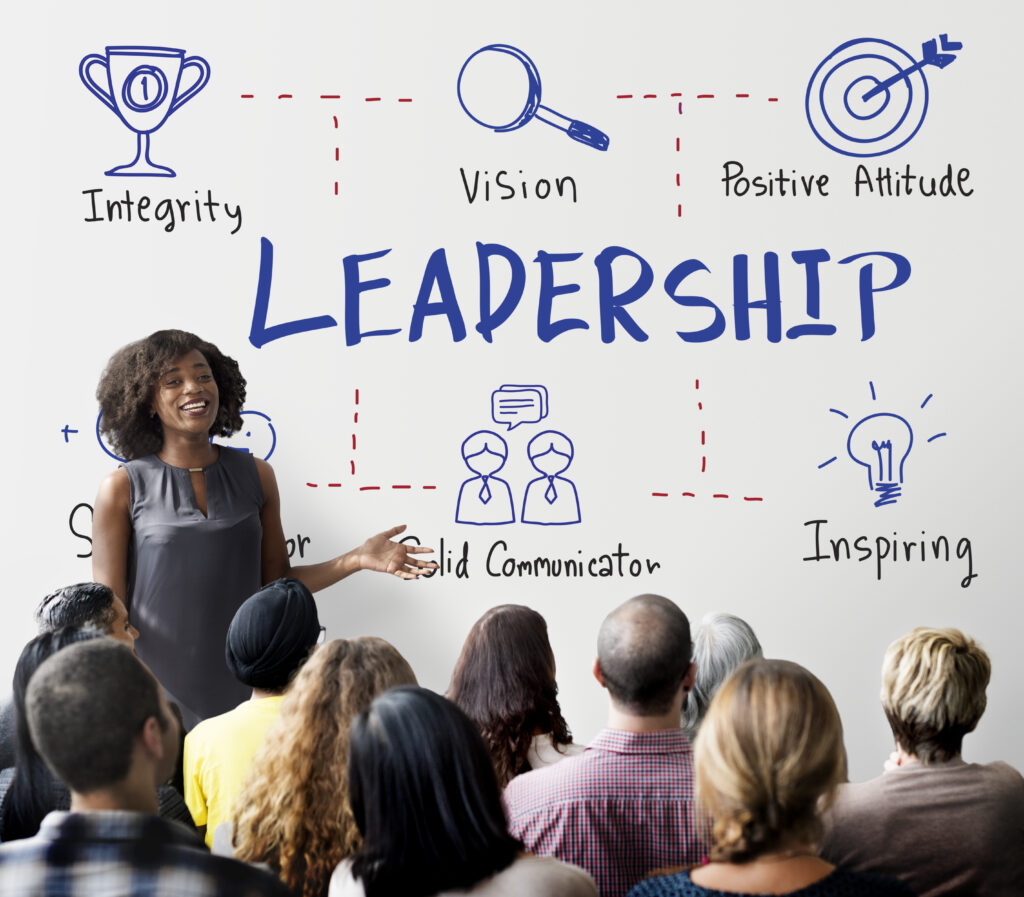Effective leadership is the backbone of any successful organization. It drives team performance and fosters a positive, collaborative environment where individuals thrive. Knowing how to improve leadership abilities is essential for anyone aiming to inspire their team and achieve shared goals.
This blog explores actionable strategies to enhance leadership skills, including developing leadership and management skills to build stronger, more cohesive teams.
What Makes a Strong Leader?
Leadership is not just about delegating tasks or meeting deadlines. It is about guiding, inspiring, and empowering teams to reach their fullest potential.
Key Traits of Effective Leaders
- Communication Skills: A strong leader communicates clearly and listens actively. This fosters understanding and ensures everyone is aligned with the team’s objectives.
- Adaptability: Leaders must adapt to changing circumstances in a fast-paced world while keeping their teams focused and motivated.
- Emotional Intelligence: Great leaders empathize with their teams, recognizing individual needs and responding thoughtfully.
- Decision-Making Ability: Effective leaders analyze situations quickly and make decisions that align with organizational goals.
Leadership Styles and Their Impact
Leadership is not a one-size-fits-all approach. Different situations require different styles:
- Transformational Leadership: Inspires innovation and change, motivating teams to exceed expectations.
- Democratic Leadership: Encourages collaboration and values input from all team members.
- Servant Leadership: Focuses on serving the team’s needs to foster trust and collaboration. Each style has strengths and can be leveraged based on the team’s needs and challenges.
The Connection Between Leadership and Team Building
Leadership and team building go hand in hand. A strong leader creates an environment where team members feel valued, understood, and motivated to succeed.
Creating a Vision and Setting Goals
A clear vision gives the team a sense of purpose and direction. Strong leaders set realistic and measurable goals that provide a roadmap for success. They communicate this vision effectively, ensuring every team member understands their role in achieving it. This alignment helps the team stay focused and motivated, working toward shared objectives.
Building Trust and Fostering Collaboration
Trust is the foundation of any successful team, and leaders play a vital role in building it. By maintaining transparency and consistent communication, leaders establish a sense of reliability and openness within the team.
Additionally, they promote a culture of collaboration by valuing diverse perspectives and encouraging teamwork. When team members trust their leader and each other, they can work cohesively to achieve common goals, creating a positive and productive team dynamic.
Actionable Steps to Improve Leadership Abilities
Becoming a better leader doesn’t happen overnight. It requires dedication and intentional efforts to develop essential skills. Below are a few steps to enhance leadership skills:
1. Commit to Ongoing Management Skills Training
Investing in management skills training is a vital step for improving leadership abilities. Leaders can enroll in workshops, online courses, or certifications to enhance their conflict resolution, strategic planning, and people management expertise. Platforms such as Coursera and LinkedIn Learning offer tailored training programs that cater to specific industries, helping leaders stay ahead in their fields.
2. Seek Feedback and Practice Self-Awareness
Constructive feedback from peers, mentors, and team members provides valuable insights into leadership strengths and areas for improvement. Leaders should also utilize self-assessment tools like the Johari Window or leadership personality tests to understand their behaviors and tendencies better. This practice promotes self-awareness, which is essential for personal and professional growth.
3. Develop Emotional Intelligence
Emotional intelligence (EI) is a cornerstone of effective leadership. Leaders can enhance their EI by actively listening to their team members and understanding their perspectives. Developing self-regulation techniques, such as mindfulness or stress management, helps leaders remain composed under pressure. Building stronger interpersonal relationships through empathy and clear communication fosters a supportive and collaborative team environment.
4. Empower and Motivate Your Team
Empowering team members by delegating tasks and giving them opportunities to grow strengthens their confidence and capabilities. Leaders should recognize and celebrate big and small achievements to boost morale and motivation. Encouraging team members to take ownership of their work by involving them in decision-making creates a sense of shared responsibility and commitment.
5. Cultivate a Learning Mindset
Leaders who continuously seek knowledge and stay curious inspire their teams to do the same. By attending industry events, reading books, and learning from peers, leaders can bring fresh ideas and innovations to their organizations. A commitment to lifelong learning also ensures leaders stay adaptable and informed about the latest trends and best practices in leadership.
6. Strengthen Conflict Resolution Skills
Effective conflict resolution is a key component of leadership. Leaders should learn to address disagreements constructively by identifying the root causes and facilitating open, respectful discussions. By managing conflicts proactively, leaders can turn challenges into opportunities for growth and maintain a positive team dynamic.
Enhancing Leadership and Management Skills for Long-Term Success
Effective leadership requires a commitment to lifelong learning and growth. It demands an openness to feedback, a willingness to adapt, and the perseverance to refine one’s skills in a rapidly changing world continually.
The Role of Mentorship in Leadership Growth
Mentorship is a powerful tool for leadership development. By mentoring others, leaders refine their skills while fostering a supportive environment for their team. At the same time, seeking guidance from experienced mentors can provide valuable insights and advice, helping leaders navigate challenges and grow professionally.
Staying Current with Leadership Trends
Leadership practices are constantly evolving, and staying informed is crucial. Leaders should read books, attend seminars, and follow industry experts to keep up with the latest trends. Podcasts and webinars are also excellent resources for learning modern leadership techniques and strategies.
Modeling Leadership Excellence
Leading by example is one of the most effective ways to inspire a team. Leaders should consistently display behaviors like integrity, accountability, and resilience that they want their team members to emulate. Actions speak louder than words, and consistent, exemplary behavior builds trust and respect within the team.
Building Cohesive Teams Through Strong Leadership
Strong teams thrive under leaders who value collaboration, communication, and mutual respect. The following are ways to improve leadership abilities further and build stronger teams:
- Encourage Open Communication: Open communication is essential for a cohesive team. Leaders can facilitate open dialogue to create an environment where team members feel safe sharing ideas and concerns. Brainstorming sessions and collaborative discussions enhance team creativity and innovation, enabling the team to tackle challenges effectively.
- Recognize Achievements and Celebrate Success: Recognizing and celebrating milestones is a simple yet impactful way to boost team morale. Leaders can show appreciation through personalized thank-you notes, team lunches, or other gestures of recognition. Acknowledging contributions reinforces a positive culture and motivates team members to continue performing at their best.
- Address and Resolve Conflicts Quickly: Conflicts are inevitable in any team, but effective leaders address them promptly and constructively. Acting as a mediator, leaders can resolve disputes by listening actively and finding common ground. Proactively managing conflicts maintains harmony within the team and ensures that disagreements do not hinder productivity or morale.
How to Measure Leadership Growth and Team Performance
Leadership success is best gauged by its impact on team performance and overall organizational growth. Here’s how to measure these:
1. Set Clear Leadership Goals and KPIs
Setting measurable objectives is essential for tracking leadership progress. Goals such as improving team productivity, reducing turnover rates, or achieving specific project outcomes provide clear benchmarks for success. Regularly assessing progress ensures alignment with organizational priorities and highlights areas for improvement.
2. Use Feedback to Drive Growth
Collecting feedback from team members through anonymous surveys or one-on-one meetings provides valuable insights into leadership effectiveness. Acting on this feedback demonstrates a commitment to continuous improvement and strengthens trust between leaders and their teams.
3. Reflect and Adapt for Continued Success
Reflection is a critical component of leadership growth. By evaluating past experiences and lessons learned, leaders can refine their strategies and decision-making processes. Staying open to change and adapting to evolving team dynamics ensures sustained success and growth.
4. Build a Culture of Accountability
Accountability is vital for sustaining growth in leadership and team performance. Leaders should foster an environment where team members take responsibility for their actions and outcomes. This can be achieved by setting clear expectations, providing consistent feedback, and addressing issues promptly. When accountability becomes part of the team culture, it drives higher commitment and productivity.
5. Leverage Technology to Track and Improve Performance
Technology offers powerful tools for monitoring and enhancing leadership effectiveness. Platforms like performance management software can help track key metrics such as employee engagement, goal achievement, and productivity trends. Leaders can also utilize tools to automate repetitive tasks, freeing time to focus on strategic decision-making. By analyzing real-time data, leaders can identify patterns that highlight opportunities for improvement.
Ready to Lead? Begin Your Journey with 99 Exposure
Improving leadership abilities is a continuous journey that demands self-awareness, adaptability, and a commitment to growth. Leaders can cultivate stronger, more cohesive teams that drive organizational success by learning how to improve leadership abilities through management skills training, fostering emotional intelligence, and empowering teams.
At 99 Exposure, we are committed to helping leaders unlock their full potential. Our comprehensive resources and expert guidance are tailored to support your leadership development.
Start your journey with us today, and remember—even small, consistent efforts can lead to remarkable transformations that inspire lasting impact. Contact us now to explore our offerings and take the first step toward leadership excellence!



